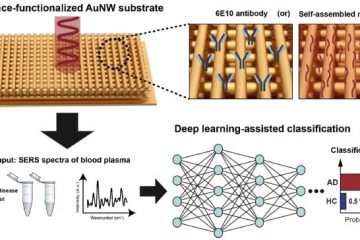A universal and rapid bacteria detection method in diverse target media is imperative for food safety analysis and diagnosis of infectious diseases. Surface-enhanced Raman spectroscopy (SERS) shows prospective as a potentially practical method to rapidly acquire enhanced bacteria Raman spectra, but its application is hampered by bacteria-containing media that provide overlapping signals or decrease the signal-to-noise ratio. For speedy detection of bacteria in various media, we forgo tedious cell extraction processes and classify of E. coli, S. epidermidis, and their media signals that are collected on silver-coated SERS substrates and analyzed with a deep learning model. With outstanding classification accuracies that excel those from classical machine learning methods and previously-reported deep learning models, the combination of SERS and a custom developed deep learning model serves as an effective platform for separation-free detection of bacteria in arbitrary media with short data acquisition times and small amounts of data.
‘Fingerprint’ machine learning technique identifies different bacteria in seconds
Deep learning-based SERS analysis platform offers a fast and effective way to identify bacteria
한국경제신문: AI Insight -0.5마이크로미터 박테리아…’정확도 98%’ AI로 찾는다
딥러닝 기법으로 수십초 내 98% 정확도로 박테리아 검출
‘딥러닝’ 활용해 빠르게 박테리아 검출…의료·식품분야에 적용
Related publications
1. E Rho, M Kim, S H Cho, B Choi, H Park, H Jang, Y S Jung, S Jo, Separation-free bacterial identification in arbitrary media via deep neural network-based SERS analysis, Biosensors and Bioelectronics, 2022, [LINK] [PDF]
